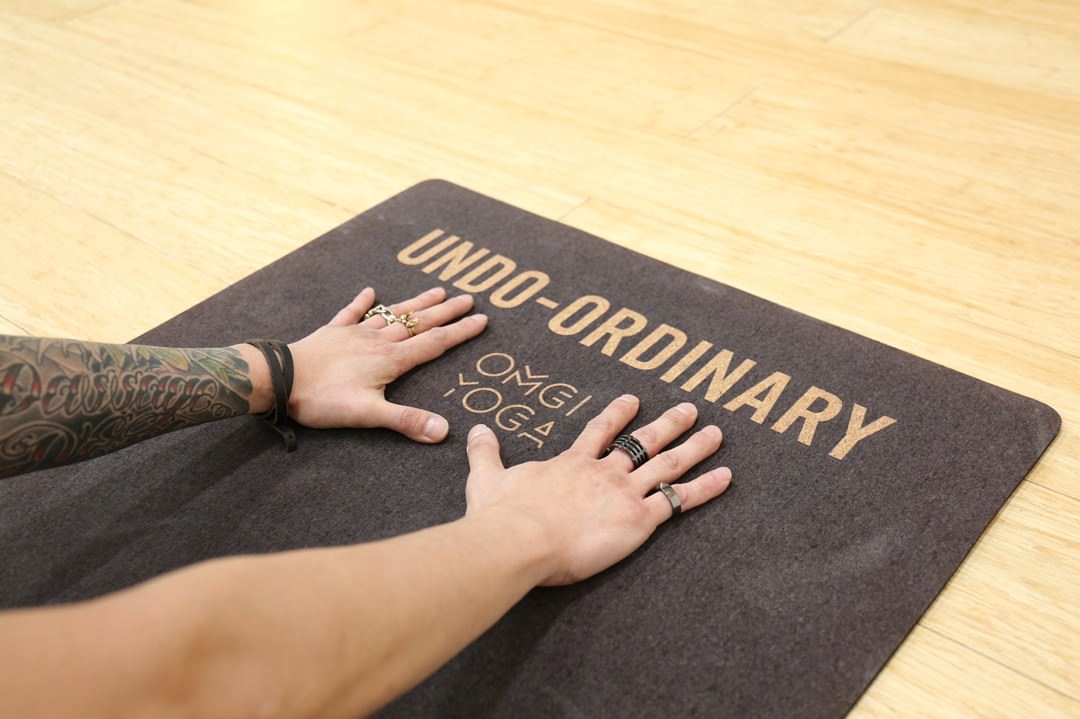Reflections on a life spent in water
A life spent in the pool has taught Lauren Ohtake a thing or two about pushing her boundaries. Ohtake was placed in swimming lessons at the age of four and never looked back. Competitive swimming took Ohtake all through high school and into college, where she received a scholarship to swim at Boston College (BC). Although she no longer swims competitively, she speaks acutely of how the sport helped shape her discipline and drive. UNDO caught up with Ohtake to talk about her swimming career, how a life in the pool influenced her down the road, and what to do when the water gets a little rough.
What attracted you to the water?
There's something meditative about starring at a black line [at the bottom of a pool] for two hours without really having any other entertainment. It's really relaxing for me to be in the water. It was something I felt comfortable with and it was nice because you're still able to do things individually while also being part of a team. I always felt better after practice, no matter what happened. Even if the practice was horrible and really hard, I always felt better afterwards.
What was your stroke or event?
My specialty was the 100 and 200 freestyle. That was what I was best at. I'm not fast enough to be a sprinter, and I'm not patient enough to be a long distance swimmer, so the middle distance was really the best for me. Everybody says to be a 200 freestyler you have to like pain because you have to be able to go all out and last long enough for eight lengths. Towards the end of my college career I was also swimming butterfly and backstroke at 100 yards.
What sort of mental tricks did you employ to push yourself in competition?
How I liked to think of it was the first 50 (first down and back) was keeping pace, just getting a feel for the water and enjoying the stroke, trying to go fast. I tried to spring in the middle 100. So the next four lengths I would break it up mentally and say, "OK, you can do this. You only have to make it four times." And then the last two I would think, "You can't look that pathetic, you really need to get your ass going. You don't want to feel horrible." It was always challenging because by your third 50, you really just want to cry.
What is your proudest accomplishment as a swimmer?
There were two main rival high schools in Hawaii, my school and then the school Barak Obama went to. The other school ended up winning year after year, but in my sophomore and senior year we won overall state championships. Both years we set state records on the relay.
In college I got to swim in Big East championships and to be able to compete on that level was amazing. There were people that ended up swimming in Olympic Trials. It was a totally different level, and to be able to see and experience that was incredible. I definitely wasn't at that level, but to be a part of it and to see it was definitely eye opening.
How do you think swimming helped you with your career?
I think it goes back to the individual versus team thing. Knowing what your responsibilities are, but still thinking about the bigger picture. Also, being aware of time. I'd always set deadlines for myself and I think it was because in swimming there's always a running clock.
Maybe part of it is about liking pain too. I work in merchandizing where you're in the middle of everybody, so you get to see and influence the most, but you also get shit on the most because you're dealing with the largest amount of people. So, it's like the same thing, with the 200 all out, no hesitation between spring or long distance. You have to like pain to a certain degree.
How do you think being a swimmer affected your confidence?
I think from a mental stance, it was always about setting new bars for yourself and pushing yourself to practice and get there. You sort of always knew that you were going to be capable of doing it because you went through a practice and you did something that was way harder than you ever thought you possibly could do, but you did it and you tried anyway. Translating that mentality from the pool to doing that in real life, having the background made it easier. It was like, oh you made it through that horrible set where you had to hold your breath for two whole lengths…this is going to be easy.
Any advice for new swimmers?
Part of being good at swimming is learning how to relax in the water. So exposing yourself to that as much as possible. Also, practicing your breathing because I think a lot of what makes people nervous about swimming is getting your breathing coordination right.
If you're considering a triathlon, and it's an open body of water swim, that's something you need to get used to. At the height of my swimming I did one open ocean swim in Hawaii, called the Waikiki Rough Water. I've never been more freaked out. There was so many people leaving at the same time and many were trying to get ahead and move through that same water. I ended up getting kicked in the face and there was lots of splashing going around. It's really important to get used to people cramming up next to you. And that's coming from somebody who not only swam, but also played water polo!![]()
Writer : Lindsay Novis




